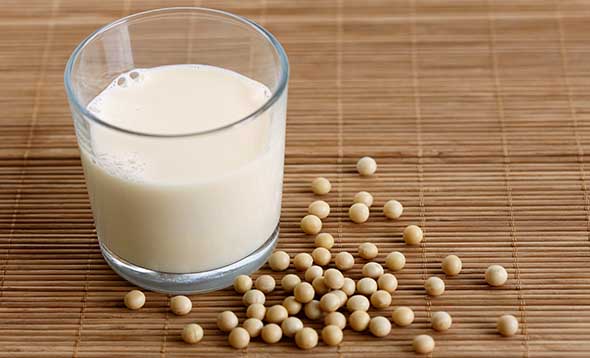That organic living is a conscious health choice
Dairy Alternatives
It starts with the dreaded bloat. Sometimes, the unbearable cramps get in on the action. Other times, you get dealt the ‘Do-Not-Pass-Go-Just-Go-Straight-To-The-Loo’ card.
While these sound suspiciously like symptoms of stomach flu, those with lactose intolerance can relate to them. Although less serious than a dairy allergy – which could be fatal – it’s still inconvenient to have to avoid milk and other dairy products that are often lurking in your favourite dishes.
The root of the problem is the lack of lactase – the enzyme that breaks down lactose in your body. And this issue can arise at any point in your life. You may have been able to enjoy yoghurts and pizzas in the past but a mouthful of ice cream now brings about bouts of pain and regret.
Thankfully, there are plenty of dairy alternatives, due to increased consumer interest in plant-based options for health and dietary reasons. While popular alternatives are not nutritionally identical to milk and tend to have lower levels of calcium, vitamins B and D, they do have their strong suits. These include higher fibre content, no cholesterol and often less saturated fat.
To help guide you along with your selection, here’s a lowdown on three popular dairy alternatives.
Soya milk
The most common plant-based alternative to cow’s milk, soya milk works well in warm beverages, cold cereals and baked goods, thanks to its thick, creamy consistency.
Pros
- With approximately eight grams of protein per 240ml to 250ml serving, it rivals cow’s milk’s protein content
- Its high levels of phytoestrogens is understood to be good for the heart and the brain
Cons
- Common food allergen
- Non-organic soy products may be made from GMO soya beans
Tips
- Read the labels carefully and opt for unsweetened soya milk that uses whole soya beans rather than soya bean extracts or concentrates
- Purchase organic or non-GMO soya milk
Rice milk
This is the most allergen-free option of all the milks, which makes it a real lifesaver for individuals with soy, dairy or nut allergies.
Pros
- Gluten-free
- Suitable for those with multiple allergies
- Relatively inexpensive
Cons
- No protein hence less satisfying and nutritionally balanced as compared to cow’s milk
- Fats are usually added to stabilise it and prevent separation
- Tends to be almost flavourless, watery and dilute. Can be off-putting to those who are used to the creaminess of cow’s milk.
Tip
- If you can, buy brown rice milk for its added nutrition benefits
Almond milk
One of the most popular nut milks, it’s a tasty dairy substitute that works in many recipes.
Pros
- Low in calories. Each 240ml to 250ml serving has just 25 to 50 calories, about 15 to 30 per cent of cow’s milk’s calorie content.
Cons
- Common food allergen
- Most almond milks only contain two per cent of nuts, hence drinking almond milk is less nutritious than eating the nuts
Tip
- Opt for almond milks that are enriched with calcium


























_1672804154.jpg)

_1611290459.jpg)